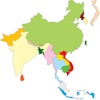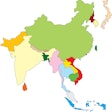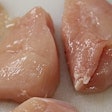Cargill has reported $236 million in earnings from continuing operations in the fiscal 2012 first quarter ended August 31, a 66% decrease from $693 million in the same period of 2011. Last year’s first quarter included an additional $190 million in earnings from Cargill’s former majority investment in The Mosaic Company.
“It was a tough quarter," said Greg Page, Cargill chairman and CEO. "With results down from recent levels, we’re focused on regaining our earnings momentum." Page said the change in Cargill’s results is due in large part to the persistently high degree of uncertainty in the global economic environment, which injected turbulence into commodity markets and limited prudent trading opportunities. The prevailing “risk-on, risk-off” dynamic in financial markets also caused capital to move in and out of commodities rapidly, which reinforced taking a disciplined approach to risk-taking. Other factors included acquisition-related expenses and outlays related to the flooding on U.S. inland waterways, which increased freight costs and required measures to be put in place to protect supply chains to customers.
Among the five business segments, earnings rose in agriculture services due to crop input sales related to weather-delayed plantings and the demand for grain handling, storage and marketing services in the lead up to the North American harvest. Results in the origination and processing segment decreased from 2011's first quarter, negatively affected by the combination of adverse weather, reductions in projected grain supplies and the weakening world economy. In the food ingredients and applications segment, the food ingredient businesses on a combined basis nearly matched 2011's record-high performance. Results among the segment’s animal protein businesses were weaker due in large part to higher livestock and feeding costs in North America relative to domestic demand; exports remained firm. The risk management and financial segment was hurt by the stress in financial markets caused by growing economic, fiscal and political concerns on both sides of the Atlantic. Industrial earnings softened on lower seasonal demand.


















